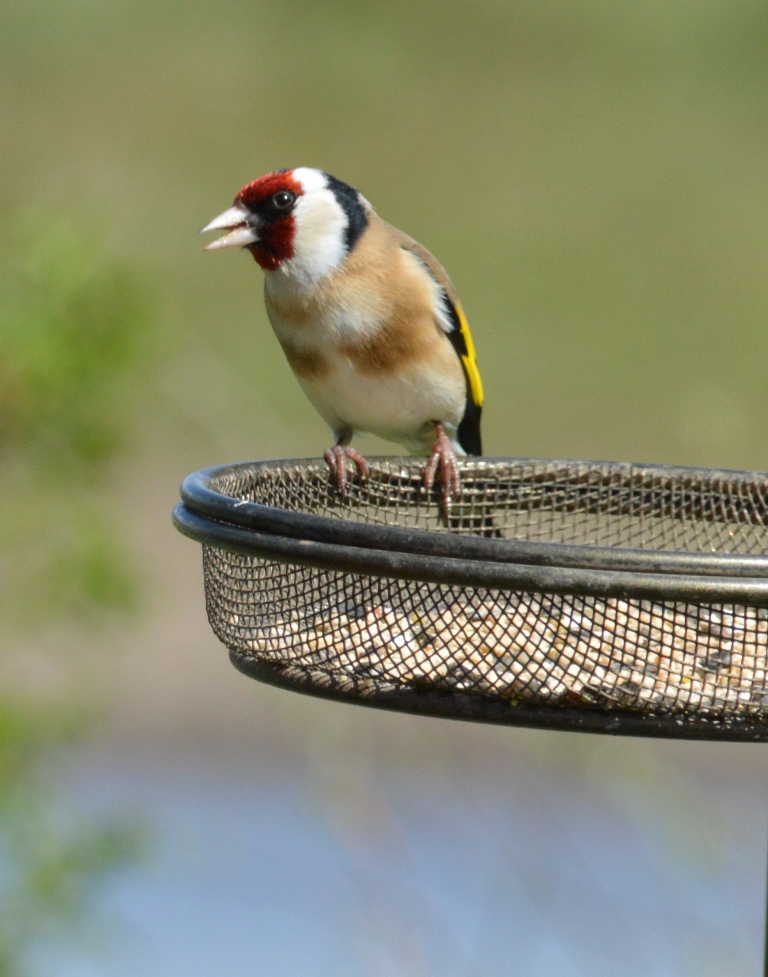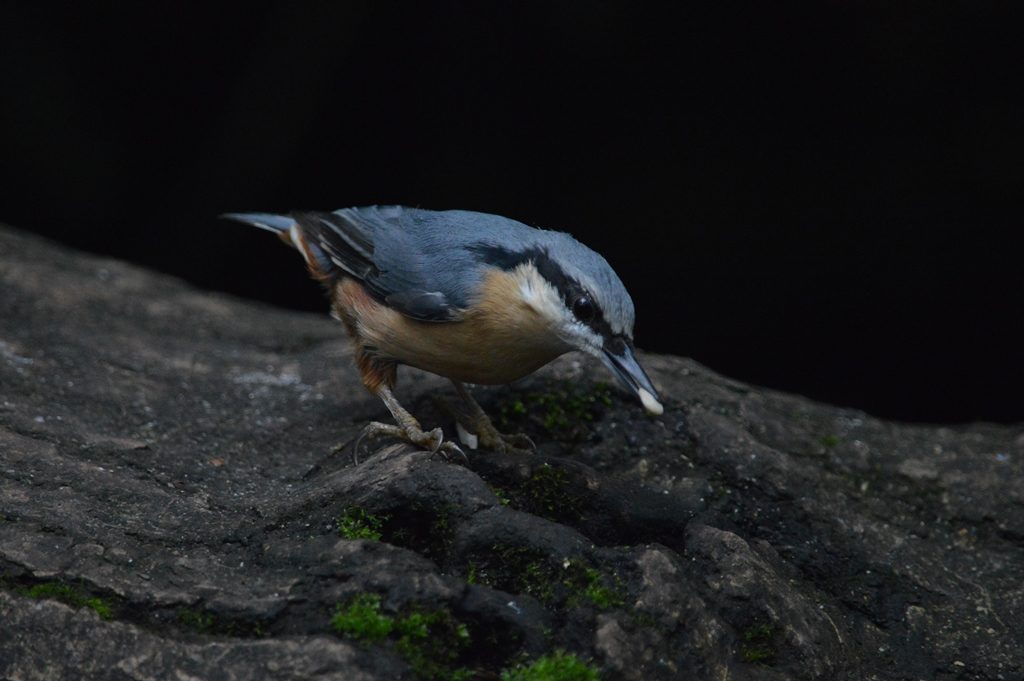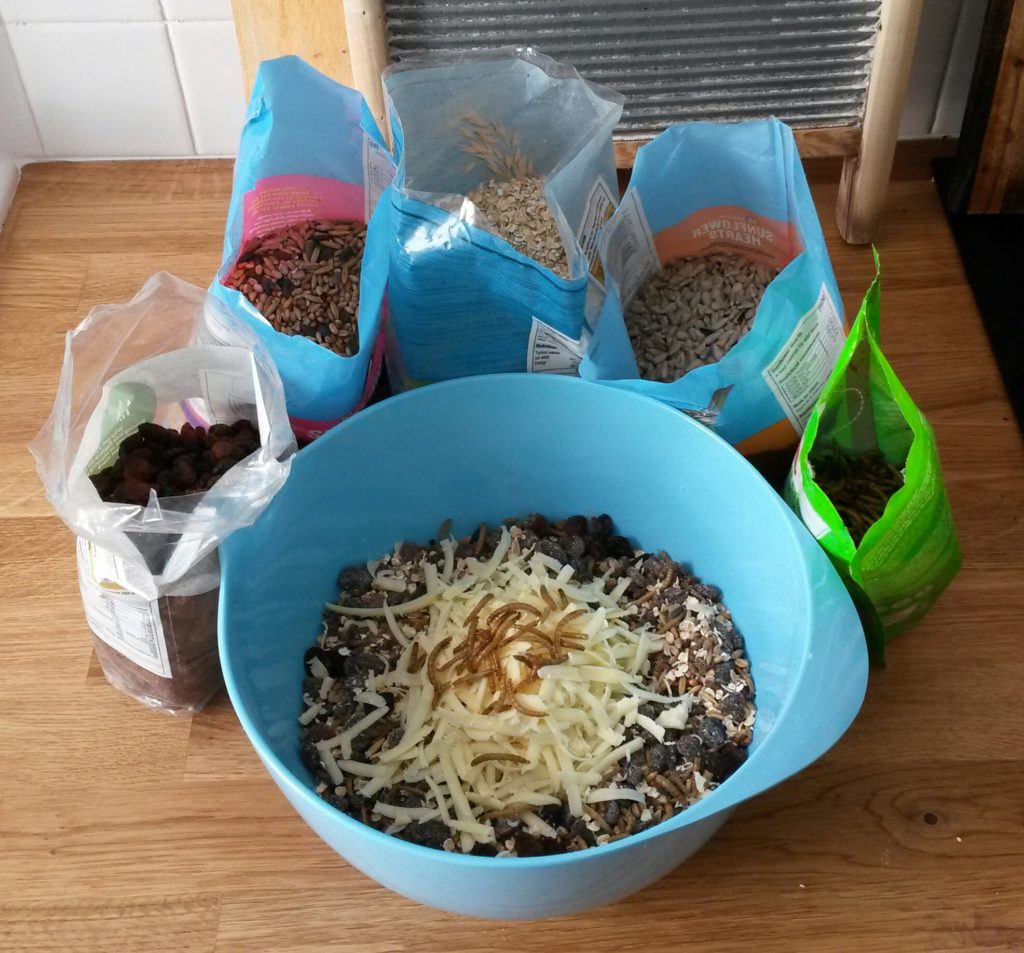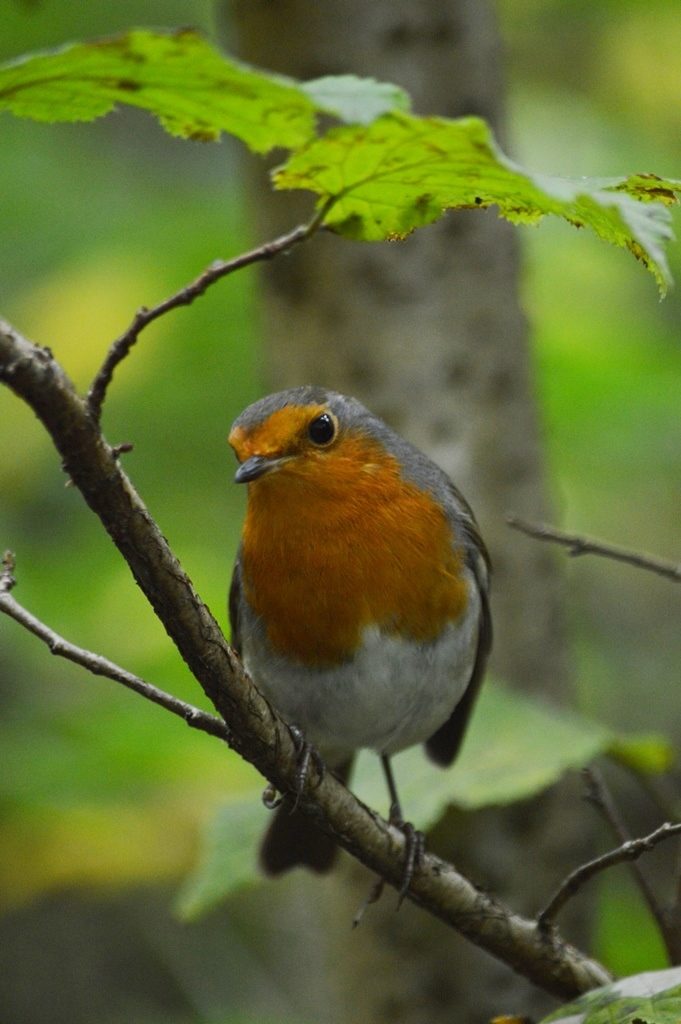
Goldfinch
These beautiful birds are often seen flocking in large numbers, named charms.
Looking for a fresh perspective on the five steps to wellbeing? Look no further! 2019 Unplugger Joe Crossland blogs some awesome tips to help you make the most of this weekend’s RSPB Big Garden Birdwatch…
This weekend (25-27 January) is the RSPB’s annual Big Garden Birdwatch, the world’s largest wildlife survey. As well as contributing valuable data to this national citizen science project, it’s also a good excuse to practise the five steps to wellbeing. And all you need to take part is access to some greenspace and a pencil and paper.
If you’re not familiar with the Big Garden Birdwatch, in a nutshell it’s an activity based on counting the birds in your garden or local greenspace and then submitting your records. The RSPB then crunch the data and build a picture of wildlife in the UK, comparing results with previous years to identify trends such as the observation that certain species like the house sparrow and starling are in trouble, while others, like goldfinches, are doing rather better. Monitoring the status of our wildlife is vital in the fight to protect species and habitats across the UK – both in rural areas, and in towns and cities.
So, how can participating in this popular citizen science project contribute to your wellbeing?
Take notice
Firstly, how about taking notice? While undoubtedly a relaxing activity, it’s also an opportunity to pay close attention to your immediate environment. I like to see if I can spot different behaviours on and around my bird feeders – who rules the roost, and who are the opportunists, making a smash and grab for the bounty on offer? What sounds can you hear? Do the birds exhibit any quirky tics like a bob, a bow or a fluttering vocalisation? Taking time to observe the little things will give you a greater appreciation for these little winged wonders, when perhaps before they might have just been ‘birds’.

Nuthatch
These masked bandits are famous for the way they jam seeds and nuts into tree bark and then crack them open with their strong beak.
Learn
Secondly, it’s an opportunity to learn. If your bird ID skills aren’t at the level of Chris Packham or Michaela Strachan, that’s fine. You’ll get a pictorial tick sheet when you register to take part and online resources such as the RSPB’s bird ID tool are great for identifying any tricky garden visitors. If, by the end you can tell the difference between a chaffinch and a blackbird you’ve made progress!
Give
It’s also an opportunity to give. By volunteering an hour of your time and the resulting data, the RSPB can build a picture of the current status of wildlife in your area and not only compare this with previous years, but also with different parts of the country. And don’t worry if you only record a few species, as every good scientist knows, even a result of zero birds is a useful result. Once you’ve submitted your results, sit back and enjoy the warm glow of a job well done!
Be active
I normally do my birdwatch enjoying the home comforts of a warm kitchen, with a cup of coffee and a pastry, but there’s nothing to stop you getting outdoors and being more active. Why not incorporate your birdwatch into a walk round your local park? We know that exposure to greenspace is good for our health – just ask the Fresh Air Fridays team. So if the BGB inspires you to get outside and explore the natural world on your doorstep, then so much the better!

By mixing up a few things found at home you can provide a feast for the birds.
Connect
Finally, if you enjoy the birdwatch, there are plenty of opportunities to connect with other likeminded people. So many conservation organisations are looking for enthusiastic volunteers to get involved in projects across the country – take a look at the opportunities offered in your area by the Wildlife Trusts, the RSPB or The Conservation Volunteers, for example. Volunteering is a fantastic way to meet new people, learn new skills and do something positive towards tackling the challenges faced by the natural world including habitat loss, the biodiversity crisis and the climate emergency.
And for your digital needs, there’s also a thriving community of wildlife enthusiasts online, just look at the BBC Springwatch Twitter feed!
So, if you’ve never been involved before, why not give the Big Garden Birdwatch a go this year? Conservation science will thank you for it, and once you’ve experienced the wellbeing boost, you’ll be thanking yourself too!
Top tips for the Big Garden Birdwatch
In advance of the Birdwatch, register online: https://www.rspb.org.uk/get-involved/activities/birdwatch/.

The only bird to sing all through the winter, robins were recently voted the nation’s favourite bird.
There’s no need for bird feeders, which can be an expensive outlay – get a bowl and make a mix of grated cheese, raisins, porridge oats and bird seed (or sunflower seeds) which you can sprinkle on the ground. This, or making your own suet cake feeders are great ways to get kids involved.
Make yourself a nice hot drink and pull up a comfy chair to the window, with a good view of your bird feeders, or wherever you’ve left some food. Or find your best winter coat, scarf and gloves and head outside for a wintry walk!
Have a pencil and some paper handy, not just to record the wildlife you see, but for notes of any observations you might make, or to draw what you see. Have a look at this nature journal on Twitter for inspiration.
Binoculars and bird books are nice to have, but aren’t necessary – just so long as you’re close enough to the birds to be able to identify them.
Watch for an hour, noting down the maximum number of each species that visit at any one time (single robins visiting multiple times only counts as 1 robin). Then submit your results online.
Remember, it’s not a competition. Even if you only get a few species, this is valuable data for conservation science and goes towards building up a picture of the state of wildlife in your part of the country.
Lastly, have fun!
— Friday 24th January —









